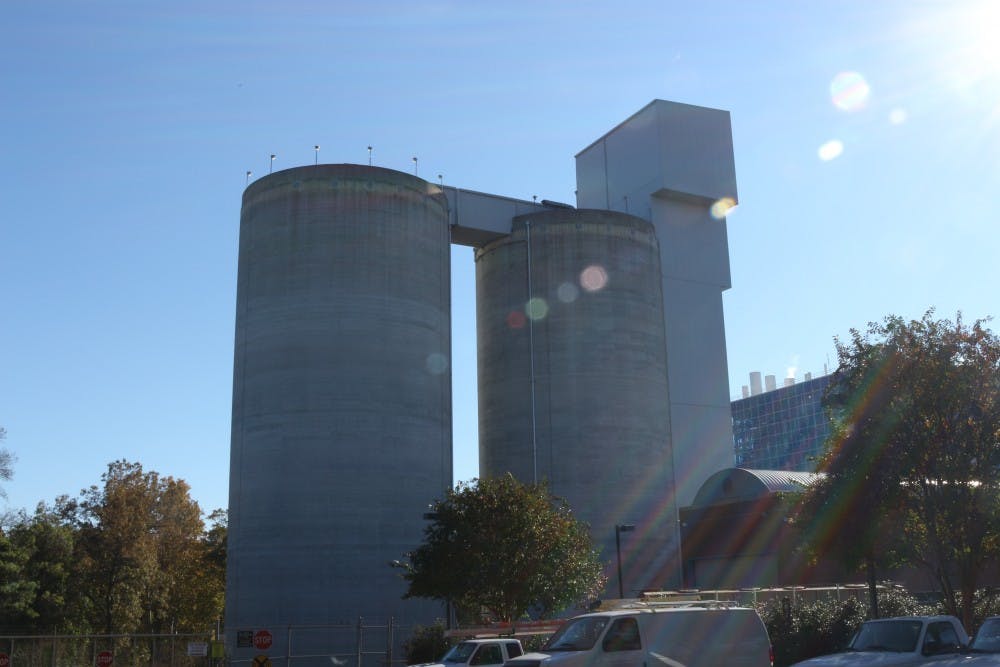UNC has faced criticism for the coal component of its cogeneration plant in the past. While the University is working to become greenhouse gas neutral by 2050, the plant must also undergo routine permit renewals, and community members are fighting for more say in the process.
Jonathan Pruitt, vice chancellor for Finance and Operations, said the permit renewal is necessary to remain in compliance with environmental regulations. Though the University can no longer meet their original goal to be coal-free by 2020, the permit will help UNC stay on track to achieve carbon neutrality by 2050, Pruitt said.
“On Three Zeros Day 2018, we announced that by the end of next year we will have converted the plant to 50 percent natural gas, which will result in a four to five percent reduction of the University’s overall emissions,” Pruitt said.
The plant currently operates at more than 15 times lower than their permit limit, said Tom Loter, campus historic preservation officer at UNC, in an email to Judy Johnson, operations manager for the Town of Chapel Hill.
Despite the plant being on track to meet the University’s goals, some community members are hoping for more transparency in the permit process.
Elizabeth O’Nan, a Chapel Hill resident, is the director of Project All Children’s Environment and serves on the executive board of the Blue Ridge Environmental Defense League. Not only has she worked on environmental issues for 30 years, but she is also a victim of chemical injuries, which prompted her to take action when she and her daughter noticed negative respiratory symptoms since moving to Chapel Hill.
When O’Nan became aware of the permit, she said she wondered why the community had not been alerted earlier. She soon realized the news had only been posted on the Division of Air Quality’s website.
“No one knows to go there to look,” O’Nan said. “It used to be a fairly transparent process.”
O’Nan contacted Chapel Hill Mayor Pam Hemminger, who said she was alerted of the permit only at the end of the public comment period.



